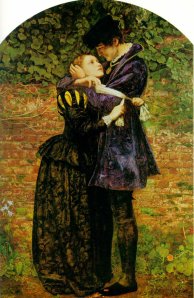I'm pretty sure that that name is unfamiliar in every way for a number of my readers. I first learned about the Huguenots as a freshman in Trinity University, when I enjoyed a hobby called bookworming.
Not very long ago I was reading a story by the Rev. Gerald Mann, founding pastor of Riverbend Church Austin, Texas. Gerald Mann was invited to be a keynote speaker at a fundraiser sponsored by the Catholic Church. When he stood to speak, he opened his talk by saying, "I'm glad to be part of raising money for a Catholic project eventhough I'm Southern Baptist." Laughter broke. He went on to say, "I find this a privilege because I never thought this could happen to someone like me. You see, my great-grandmother's last name was Foy. She was French. She never met her grandfather- her father's father. She belonged to the last batch of Huguenots who left France to North America- her father, grandfather, and great-grandfather were killed by Catholics." There was sheer silence, according to Rev. Mann. After the meeting, the Bishop approached him and ask for forgiveness on behalf of the Catholic church.
Frank Puaux suggests, that the name Huguenot is a clever pun on the old French word for a covenanter (a signatory to a contract). While others suggest that the name huguenote would be roughly equivalent to little Hugos, or those who want Hugo, a respected French king.
In reaction to the growing Huguenot influence in France, and the increasing instances of Protestant zeal, Catholic violence against them grew, at the same time that concessions and edicts of toleration became more liberal. In what became known as the St. Bartholomew's Day Massacre of 24 August – 17 September 1572, Catholics killed thousands of Huguenots in Paris. Similar massacres took place in other towns in the weeks following, with death toll estimates again ranging wildly to as high as 110,000. An amnesty granted in 1573 pardoned the perpetrators.
What captured my attention in all this is a painting. Yes, you read it right, a painting by Millais titled, A Huguenot and his Catholic lover on the eve of St. Bartholomew's day.

When one takes a closer look at the painting, one will notice the sheer mixture of emotions on the faces of the couple- a sense of anticipation for their meeting; a sense of fear and insecurity- that they were spending their last night together; there is a look on their faces that seems to communicate that their religions are at war against each other and there is no way they can stop it- one of them will inevitably be killed by the sword the next day, and thus they say "goodbye" and surrender their love to fate.
The painting is so moving that part of me wishes to name these lovers and write a book, a short story, or something in memory of people whose lives and love have been caught in religious wars.
I want to name the man, Etienne, the woman, Sandrine. The painting is inspiring enough to compose something, thus I will write their story during my free time, hopefully.


No comments:
Post a Comment